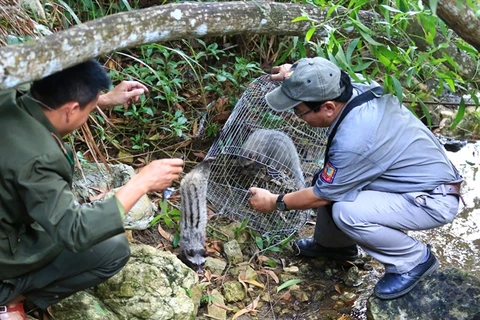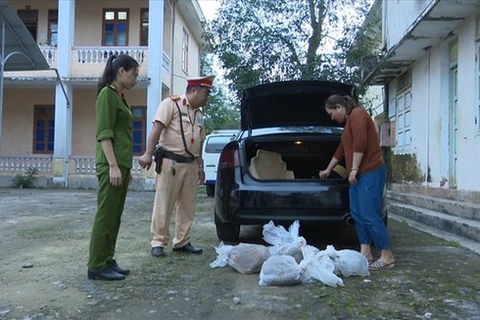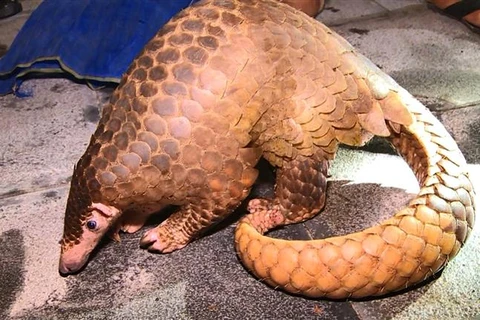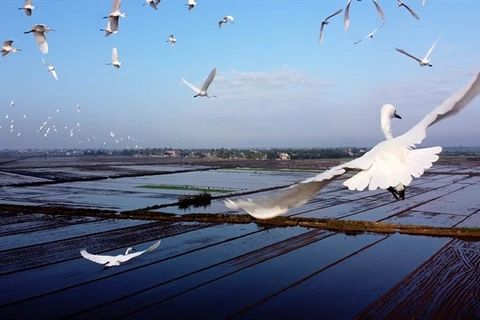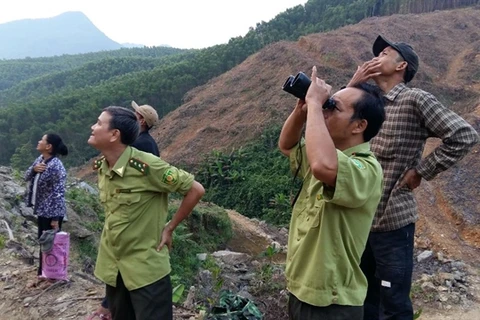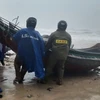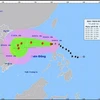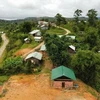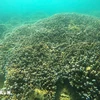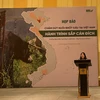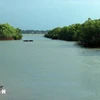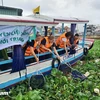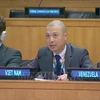 Wild birds caged and sold at Thanh Hoa Market in the southern province of Long An (Photo: VietnamPlus)
Wild birds caged and sold at Thanh Hoa Market in the southern province of Long An (Photo: VietnamPlus) Hanoi (VNA) – In the face of complex developments of the acute respiratory disease caused by the novel coronavirus (COVID-19), the World Wide Fund for Nature (WWF) has issued a statement on closing down illegal wildlife markets across the Asia-Pacific region.
This organisation said the coronavirus causes the zoonotic disease, which can transfer from animals to humans.
Vietnam, for many years, has been vulnerable and exposed to zoonotic deadly diseases like the severe acute respiratory syndrome (SARS), and currently COVID-19. Closing down illegal wildlife markets permanently and strengthening law enforcement in the illegal wildlife trade would help the country avoid potential zoonotic outbreaks, it noted.
Unforeseen perils
The statement said while the negative impact of the illegal wildlife trade on plant and animal populations and global biodiversity is well known, the risk to human health that can occur because of wildlife markets appears to be less known.
The current emergence and spread of the coronavirus, as well as SARS, the Middle East respiratory syndrome (MERS) and similar outbreaks in recent history, underscores the need for urgent actions to be taken and awareness raised on the potential threats to human health posed by the illegal and unregulated wildlife trade.
Illegal markets for live and dead wild animals are common across many Asian countries, especially in areas such as Greater Mekong’s Golden Triangle where Laos, Thailand and Myanmar meet close to the Chinese border, the WWF noted.
[Over 1,700 wildlife violations recorded in 2019]
Snares set by poachers to meet a growing demand for wild meat have become a widespread problem. As a result, many of Asia’s tropical forests are being emptied of their endemic wildlife populations – including many endangered species, the trade in which should be strictly prohibited. Unfortunately, enforcement of laws in many of these illegal wildlife markets is weak or often non-existent.
 A wildlife seller offering a tortoise weighing 15kg for sale at a shop in Thanh Hoa Market (Photo: VietnamPlus)
A wildlife seller offering a tortoise weighing 15kg for sale at a shop in Thanh Hoa Market (Photo: VietnamPlus) Not only are these illegal activities threatening wildlife, the absence of any veterinary controls makes them a threat to the health of both people and domestic animals, with the potential to significantly impact communities and economies, both locally and globally, the statement pointed out.
Law enforcement needs enhancement
According to WWF, the coronavirus causes the zoonotic disease, which can transfer from animals to humans. The virus has the potential to mutate and infect humans by jumping the species barrier in places where people come in close contact with infected animals. Wildlife markets, therefore, provide a potentially fertile environment for this type of viral mutation and infection of humans, at times with fatal consequences.
Movements of infected people, aided by rapidly growing transportation and tourism sectors, can then turn local outbreaks into pandemics.
[Man receives six-year jail term for transnational wildlife trading]
The Government of China recently decided to temporarily ban the sale of wildlife in markets, restaurants and online.
Dr. Van Ngoc Thinh, Country Director of WWF Vietnam, said the country has for years been vulnerable and exposed to zoonotic fatal diseases like SARS and currently, the novel coronavirus. Closing down illegal wildlife markets permanently and strengthening enforcement in the illegal wildlife trade would help Vietnam avoid potential zoonotic outbreaks.
He added that in a quick and timely response to the recent coronavirus, the Chinese government banned the trade of wild animals, and Vietnam can act similarly to contribute to world efforts in preventing any zoonotic epidemic now and in the years to come.
He also affirmed that WWF will work closely with governments in the Asia-Pacific region to further strengthen national and international legal systems and engage public health sectors to eliminating illegal wildlife trade, including closure of unregulated wildlife market./.
